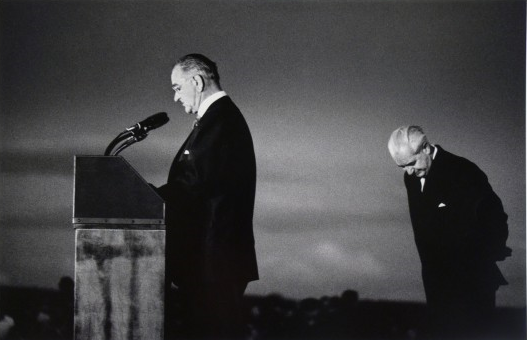
The Turnbull government’s foreign-policy white paper is due any day, and it’s a fair bet it will not recommend what is fashionably called an ‘independent foreign policy’. That is bound to upset many intellectuals, former diplomats and Greens politicians, who continue to believe that Australia, as Paul Keating
puts it, is ‘the Uriah Heep of this world dragging along behind [the US]’. A new magazine called
Australian Foreign Affairs (Black Inc. Books) premieres this week with articles supporting an ‘independent foreign policy’.
We ought to put to rest the myth that Australia doesn’t have an ‘independent’ foreign policy. Indeed, since Federation in 1901, we have been a proud, independent nation with a distinct sense of our own values, traditions and interests, some of which have been sharply different to America’s and Britain’s.
To be sure, the need for ‘great and powerful friends’, as Robert Menzies said, is deeply embedded in the Australian psyche. From our birth as a nation-state, we have always sought a close association with a great power with which we share values and interests. For the first decades of Australia’s existence, a declining but still formidable Britain filled that role. Then for a decade or so—in the 1940s and 1950s—it was shared by Britain and America. For the past six decades, it has been performed by the US alone. Australia is also the only nation to have joined the Americans in the foxhole in every major military intervention in the past century. All true.
Yet that doesn’t mean Australia has been a lickspittle of London or Washington. Nor does it mean there have been constraints on our nation’s sovereignty or our ability to make our own way in the world. Just think how Australia expressed its independence within and sometimes without the empire in the first decades of the 20th century.
As the distinguished diplomatic historian Neville Meaney has shown in his magisterial
history of Australian defence and foreign policy from 1901 to 1923, Australian leaders clashed with their counterparts in Whitehall when they felt that our nation’s distinctive Pacific interests, especially in relation to Japan, weren’t understood or appreciated in London. And they did that before the formal creation of an external affairs department in the mid-1930s.
Those who persist with the myth that our political leaders have never really demonstrated independence on the global stage have studied little history. Examples abound in the first half of the 20th century: Alfred Deakin’s skirting of the British colonial office to get the Great White Fleet to Australia; Menzies’ appointment of the first Australian ambassadors abroad, and his decision to delay sending Diggers to the Middle East at the outbreak of World War II; and John Curtin’s arguments with Winston Churchill over Australian troops.
Even during the Cold War, Canberra didn’t always agree with Washington. Think of Canberra’s opposition to Indonesia’s annexation of West Papua while John F. Kennedy supported the ultra-radical, anti-Western Sukarno. Or the Whitlam ministers’ strident denunciations of Richard Nixon and his national security adviser Henry Kissinger. Or the Hawke government’s withdrawal from participation in MX missile tests in Australia.
In more recent times, it’s implausible to argue that Canberra has been an American sycophant. Under Tony Abbott, much to the angst of Washington, Australia joined the China-led Asian Infrastructure and Investment Bank. His government also went to great lengths to dismiss the Pentagon’s claims that the US would send B-1 bombers to northern Australia. Since 2014, Canberra has invited Chinese soldiers to conduct joint trilateral military exercises with the US.
Under Malcolm Turnbull, Australia rejected the US-backed Japanese submarines bid. He didn’t keep Washington in the loop about his government’s decision to allow a PLA-linked Chinese company to lease the Port of Darwin. Nor has he supported the Obama and Trump administrations’ freedom-of-navigation operations with follow-up patrols in territorial waters claimed by Beijing in the South China Sea.
Those who issue a clarion call for Australia to have an independent foreign policy usually mean we should have a different foreign policy. As Peter Varghese, the former head of the Office of National Assessments and the Department of Foreign Affairs and Trade, has
observed: ‘You measure independence by whether or not your framework for thinking and acting follows your own informed judgment of your national interest. In many cases, that will mean we side with the United States; in some cases, it will lead you not to side with the United States.’ It’s appropriate to debate whether we have the right or wrong policy with respect to Washington. But to insist that our foreign policy is not independent is misguided.
Which brings us back to the forthcoming foreign-policy white paper. Since the shock US election result nearly a year ago, anti-Trump sentiment is being used to undermine the US alliance. We are entitled to feel scant respect for Donald Trump, but we shouldn’t abandon our respect and affection for the country he represents. After all, the alliance remains the cornerstone of our security policy. Advantages include favourable access to US intelligence, defence and technology. Only the US possesses the power decisively to influence the peace of the region.
The key to understanding Australia’s place in the world is to strip aside the desire for an independent foreign policy and recognise that the relationship with our most important security ally rests, as relations between states always do, upon perceptions of national interest.
 Print This Post
Print This Post